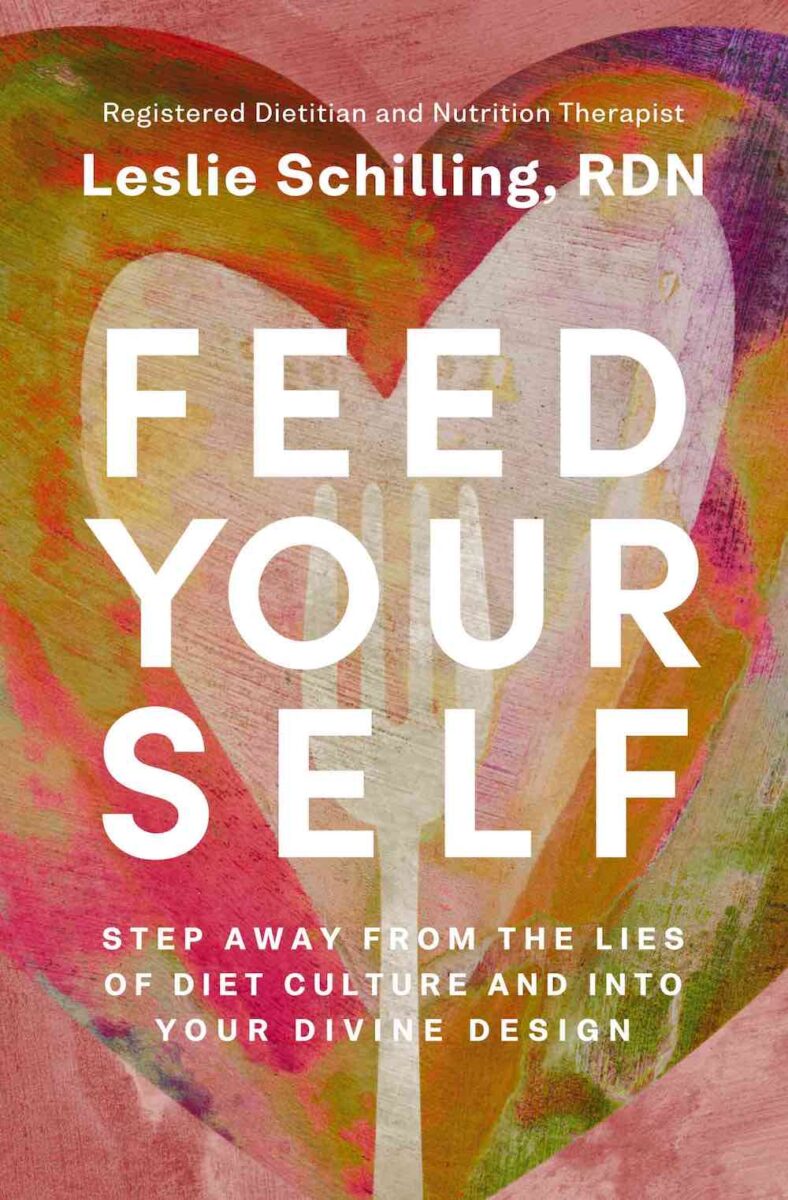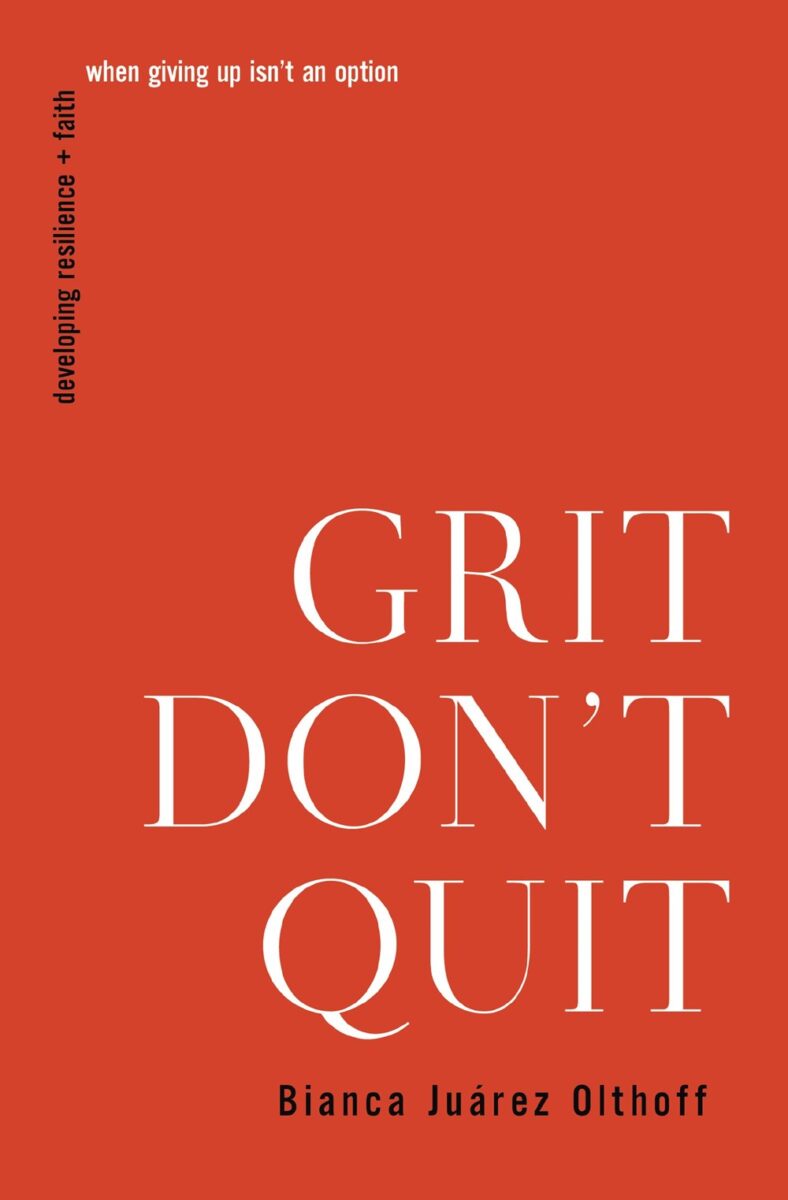Nurturing Faith and Filtering Harmful Voices: Leslie Schilling & Bianca Juarez Olthoff
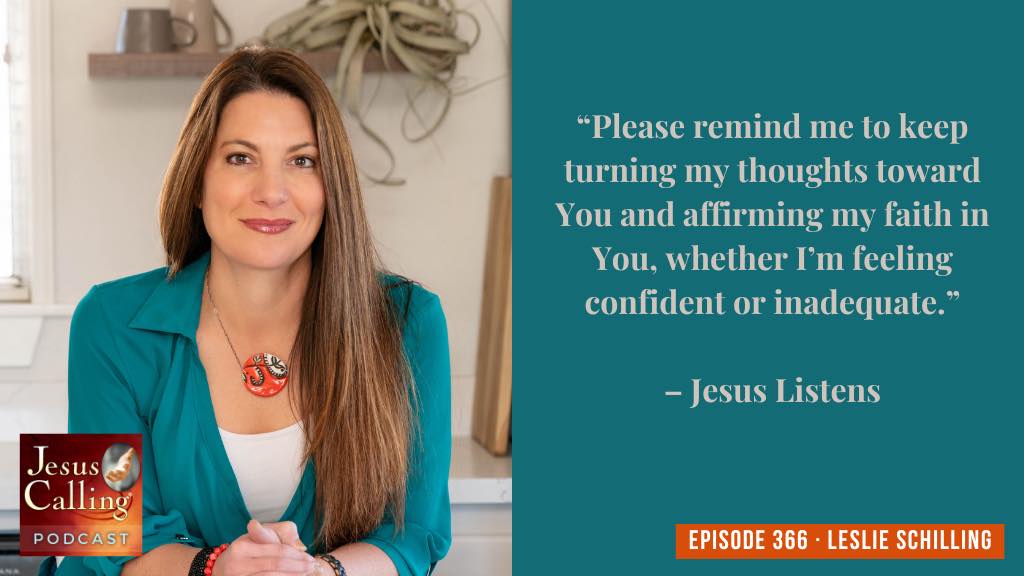
Leslie Schilling: As Christians, we really don’t want to let this world’s view of healthy policies and all of that limit us. And so healthy needs to be defined within someone’s individual thoughts or in their family system and not let kind of our cultural expectations of what health looks like get in the way of that.
Nurturing Faith and Filtering Harmful Voices: Leslie Schilling & Bianca Juarez Olthoff – Episode #366
Narrator: Welcome to the Jesus Calling Podcast. Belief is a crucial factor in personal growth and success. It fuels our determination, inspires resilience, and empowers us to overcome challenges. When we trust what is true we are less influenced by the opinions and judgments of others, which can often be hindered by their own limitations or biases. The object of our faith and belief must be sound, reliable, and constant. When we define our worth by a divine standard instead of the perceptions of others, we find greater self-confidence, authenticity, and ultimately, fulfillment.
This week, author and registered dietitian Leslie Schilling shares her philosophy on having a “full and fed” life where we resist what society tells us is “healthy,” and decide that the bodies God gave us, no matter their size or shape, are miraculous. Author and preacher Bianca Juarez Olthoff shares how she defied the voices that told her that she was “prone to fail” by believing her status as a child of God would bring her a true definition of success.
Let’s start with Leslie’s story.
Leslie: My name is Leslie Schilling. I am a registered dietitian, nutrition therapist, and sports dietitian and author. My career has taken me from sports nutrition to becoming an eating disorder specialist and writing. And I have just been such a lucky person to have the experiences that I’ve had in my professional career.
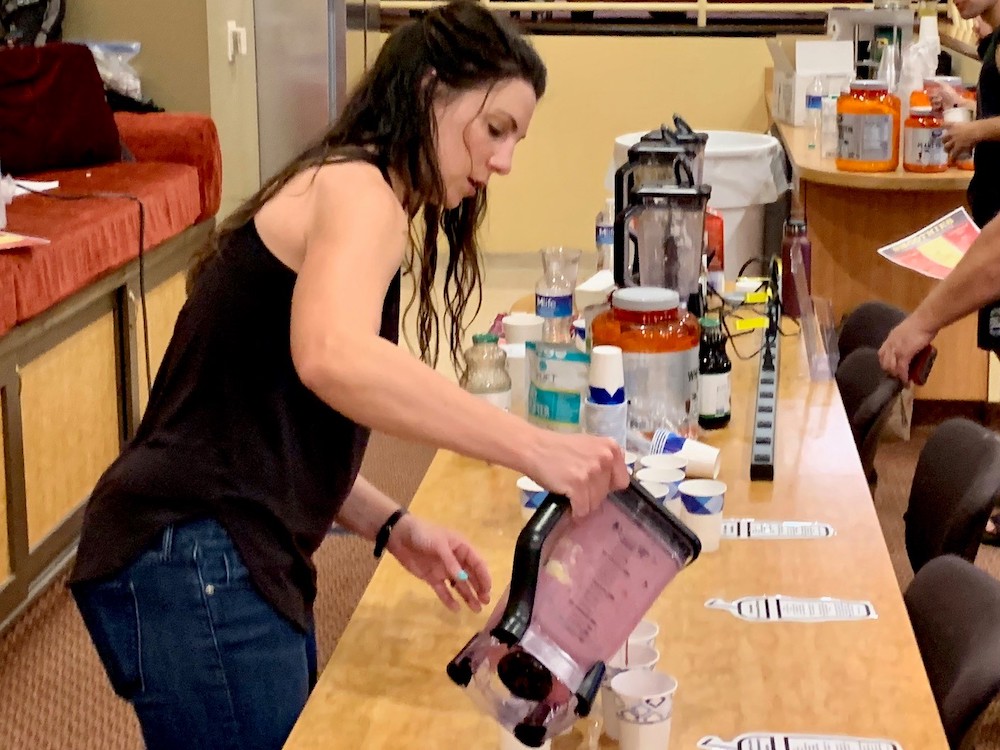
My passion for nutrition really started when I was in college because I had no idea that nutrition was something that you could major in, that it could be your profession. I was at school in a pre-med biology program. I was really into forensics and kind of the CSI-type stuff before there were shows about it. And I met a wonderful, wonderful advisor that said, “Leslie, why don’t you take this nutrition class this summer?” And I did.
And having been an athlete growing up, I was a gymnast and I ran track and was always really active. It was just so interesting to me that I could major in fueling the body as well. And so that led me into the field of nutrition, and then I landed in nutrition research at the University of Memphis for several years and then moved to U.T., which is the University of Tennessee, and did nutrition there. And then I moved into a practice of my own, where I was lucky enough to support people with their sports nutrition needs and disordered eating, which is far more prevalent than we realize. I’ve been able to work in the NBA and in Las Vegas with Cirque du Soleil and some just really amazing athletes and have been just super blessed with opportunity in my professional career.
Having a Healthy Relationship with God
It’s important to have a healthy relationship with food so we can actually feed ourselves, so we can have the energy to go out and connect with others and take care of those we love around us and do our jobs. We have to be fed to live this life well.
“It’s important to have a healthy relationship with food so we can actually feed ourselves, so we can have the energy to go out and connect with others and take care of those we love around us and do our jobs. We have to be fed to live this life well.” – Leslie Schilling
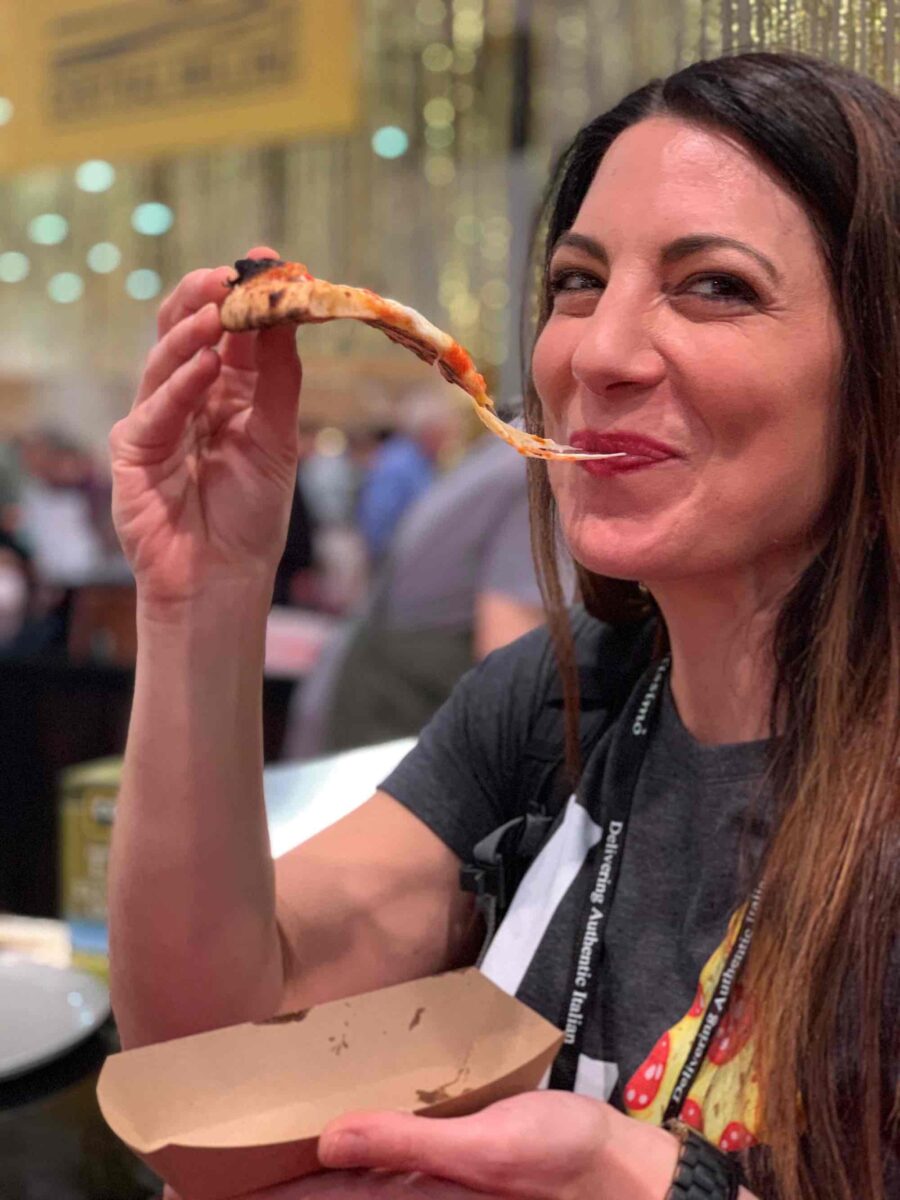
I think first we have to realize that a healthy relationship with food is not viewing the very good gift of food from God as the enemy, and that culture teaches us that. It teaches us that we can’t trust food. And so a healthy relationship with food is really kind of stripping away those kind of lies of diet culture that we’ve been taught, like good food, bad food, or all these diets that, you know, abstain from a food group and all of this stuff.
Food is a gift from God, and we really need to feed ourselves consistently. If we were regularly eating, that’s a health promoting behavior, because then everything else in our body tends to work better when it’s fueled adequately, so consistent and adequate nourishment. We have to be fed to live this life well, and I think that’s what a healthy relationship with food would look like. My hope is that people realize that it’s never wrong to feed yourself and that we are diverse by design so we can move into more of a fed and full life.
“My hope is that people realize that it’s never wrong to feed yourself and that we are diverse by design so we can move into more of a fed and full life.” – Leslie Schilling
The Harmful Effects of Diet Culture
Diet culture is everywhere. It’s in churches. It’s in medical offices. It’s in our schools. And sometimes it’s in our homes. I think it’s really important to define what diet culture is. And diet culture is really a system of oppression that equates thinness with health, and it says certain foods are better than other foods and it says that there’s really only one way to have a body. And that has had such a negative impact on our culture.
We have kids that are afraid to live or celebrate the bodies that they’re in. We go out to lunch with a friend and they’re afraid to eat the food they actually want. It just makes us question these divine bodies that have these beautiful, innate self-regulation systems that we were born with. Diet culture has made us not trust our bodies and not believe that body diversity is by design.
“Diet culture has made us not trust our bodies and not believe that body diversity is by design.” – Leslie Schilling
You know, we would never look at our shoe size and be like, Oh my goodness, that should be like two sizes smaller. We just accept that our size eight foot or nine foot or whatever is what it is because that’s how we were born and that’s how we were designed and that’s part of our genetics, but we don’t realize that bodies are like that too.
If you’ve ever seen an infant, when they’re hungry, they’ll cry, and when they’re finished, they purse their lips or they turn their heads or they throw food against the wall. So we are born with this amazing, miraculous actually, self-regulation system. As we kind of grow up in diet culture, we start to trust it less and less and then we kind of think healthy means less.
In all that obsession with shrinking ourselves, falsely trying to achieve health that way, we’re living underfed lives, and I feel like it limits us as believers. For example, in medical offices, you go for a flu shot or you go for lab work, and the first thing you do is step on the scale in a doctor’s office or a medical office. And I’d say 90% of those weight checks are really not necessary. If you go for pink eye, we don’t really need a weight check, we need to be treated for pink eye, and that is how diet culture can show up there.
In schools, we see dichotomies in lessons around food where we have, This is healthy and this is unhealthy. We’re teaching a lot about how maybe larger bodies need to be changed, and that does not support the very real body diversity that has always been with us. And the ways it shows up in churches, often we can see it in out of context Bible verses. I see this happen a lot. It happens a lot where you will hear a leader talk about getting healthy or foods and then wrap it up in a verse to support it, but quite honestly, body diversity, again, is divine.
Living a Fed and Full Life
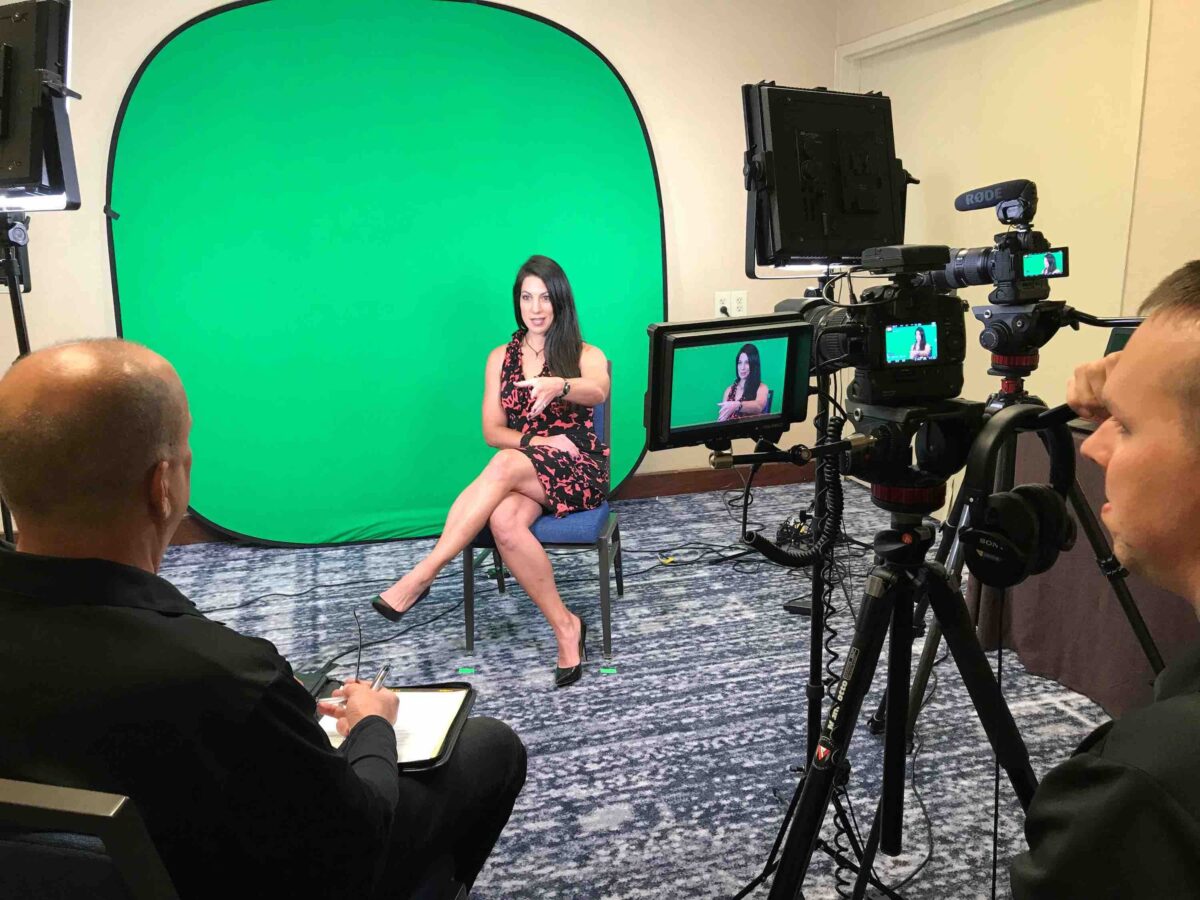
When we restrict our bodies, we’re not completely cognitively at 100%. Sometimes our levels of depression and anxiety increase, so we have trouble connecting with others. And so when we can avoid restriction and start feeding ourselves adequately and consistently, then we can really move towards more of a fed and full life.
I think connecting with God daily helps us have a healthy mindset. If we really think about what healthy means, it’s like our own definition of healthy and not the world’s definition of healthy. And for me, that’s starting my day with time with God, it helps me realize that I do not need to conform to the patterns of this world at all. It sets us up for better connection throughout the whole day.
“I think connecting with God daily helps us have a healthy mindset. If we really think about what healthy means, it’s our own definition of healthy and not the world’s definition of healthy. And for me, that’s starting my day with time with God.” – Leslie Schilling
My favorite ways to connect with God are, you know, every morning I make a cup of coffee and I go sit in my backyard. I spend a little time outside waiting for the sun rise, talking to God and doing a devotional, and devotionals like Jesus Calling have always been a helpful resource. I love them. They’re easy to get through. They’re deep in a way that I can get done in a morning and still feel very connected to God.
Jesus Listens, June 18th:
My Savior-God,
I delight in Your assurances that I am precious in Your sight. I’m so thankful I don’t have to prove my worth by trying to be good enough. You lived a perfect life on my behalf because You knew I could not do so. Now I want to live in this glorious freedom of being Your fully forgiven follower—remembering that there is no condemnation for those who belong to You!
In Your forgiving Name, Jesus,
Amen
I think pursuing health in a way that aligns with our individual values can help us spiritually by being fed. If you are living a fed life and not a restricted one, you can do more. You can think more clearly. You can live out your purpose. You can connect with others. You can do for others if that’s what you’re called to do. You can serve better. When we’re more fed, we have more energy to do the things that help us connect with others spiritually, if that’s how we decide to pursue health on this side of heaven.
“I think pursuing health in a way that aligns with our individual values can help us spiritually by being fed. If you are living a fed life and not a restricted one, you can do more.” – Leslie Schilling
Narrator: To learn more about Leslie and her work, please visit www.leslieschilling.com, and be sure to check out her book, Feed Yourself, at your favorite retailer, available August 1st.
Stay tuned to Bianca Juarez Olthoff’s story after a brief message.
Spreading Hope With Samaritan’s Purse
At Samaritan’s Purse, we bring spiritual and physical aid to hurting people around the world. We go into dangerous situations because in disaster and disease, in war, Jesus calls us to love our neighbor, to heal the sick, and feed the hungry, restore the broken. All who work and volunteer with Samaritan’s Purse follow the example of Jesus. We go to serve, not to be served. And we go in Jesus’ name. Join us at www.samaritanspurse.org.
Our next guest is podcaster, pastor, and author of Grit Don’t Quit, Bianca Juarez Olthoff. Bianca shares how she encourages people through her own story, that no matter what you walk into or what people say about you, you can do what God has for you despite not having a traditional story.
Bianca Juarez Olthoff: Hi, my name is Bianca Juarez Olthoff. I hail from the great state of California and alongside my husband, we lead a church in Orange County called The Father’s House. I am podcaster, a writer, an author, a speaker, and a co-pastor alongside my husband.
No Matter How People See You, You’re Still God’s Child
Growing up, I think I had a little bit more of a unique or different story, and I’m so grateful for it. It’s made me who I am, but I also know that it might not be the most common of stories. I was raised in east Los Angeles, California by two amazing parents who are immigrants to this country. And as a first generation American, you kind of straddle the line between your identity and like who you are versus who they are and how they were raised. In addition to being a first generation American, my parents made a decision to follow Jesus and embark in ministry, and my dad still is a pastor for over thirty-five years in east L.A., California.
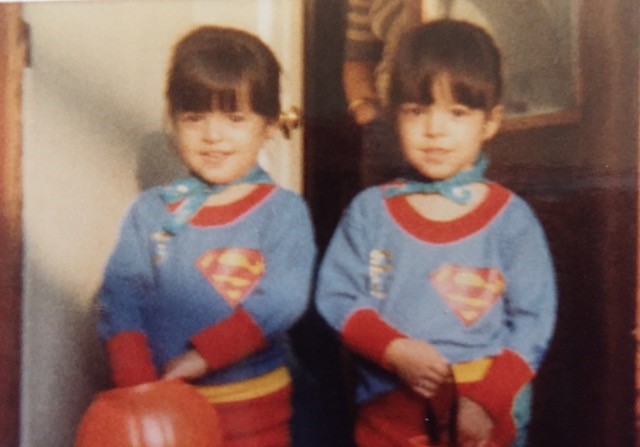
My parents made the decision to home educate us. And so there’s five kids total. And so I was homeschooled and struggled academically. I have a twin sister, and both of us really struggled to find our footing in a formal learning structure. And so I found myself at the age of twelve with an inability to read, and I struggled academically. I think statisticians would put me in a category, “highest prone to failure,” you know, first generation American female, brown, illiterate, and living in the hood.
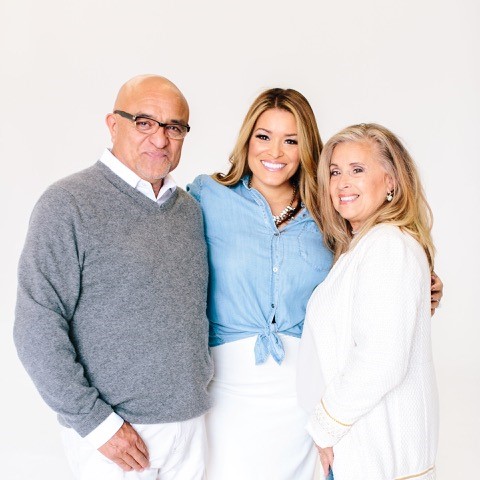
So I think through traditional academia and really struggling academically, I don’t think that there were any high hopes from anyone from our home-school program. And then stepping into high school, which was a traditional public high school, I think I was a little bit worried. Actually, I was going to say that I think my parents were worried, but in retrospect and in hindsight, they weren’t worried. My mom subscribed to the school of thought “better late than early,” and in God’s time it was going to click. And sure enough, the faith of a mom, the diligence of a dad, and the commitment to not let their children fail, my sister and I were thrust into a public school setting and absolutely loved it, and there was something that clicked.
No matter what I walked into, no matter what people said, no matter what my test scores evaluated me as, I knew that I was a child of God, and with God on my side and a whole lot of work, you can step into the God call upon your life with or without a traditional educational story or a traditional story of how you were raised or what it’s supposed to look like. You could really step into God’s call upon your life with God on your side and His Spirit equipping you. That’s been the biggest game changer for my life.
“No matter what I walked into, no matter what people said, no matter what my test scores evaluated me as, I knew that I was a child of God, and with God on my side and a whole lot of work, you can step into the God call upon your life with or without a traditional educational story or a traditional story of how you were raised.” – Bianca Juarez Olthoff
I went from really struggling academically and people considering me to be special needs to stepping into a high school campus and then something clicking. And I went on to graduate top of my class and went on to college on a full ride scholarship as a Bill Gates Millennium Scholar, and then from college, graduating college with a 3.8, on to graduate school and getting a master’s on a full ride scholarship, and graduating from grad school with a 4.0. And so when you think about that—we all love an underdog story, but I think it was more the Spirit of God reminding us of our truest identity, that we have a good Father who hears us and loves us.
“We all love an underdog story, but I think it was more the Spirit of God reminding us of our truest identity, that we have a good Father who hears us and loves us.” – Bianca Juarez Olthoff
Fostering Perseverance and Resilience
When I was younger, I just wanted to be rich. I told God, “I will love you and I will be the number one tither in church, and I’m going to fund the kingdom, but I am going to be rich.” So I had no intention or ambition of going into ministry. And it wasn’t until I was in grad school and I had a break for summer and the youth minister at my dad’s church said, “We have no female leaders and I need you to go.”
I said, “You know what? I’m in grad school, so I don’t have money.” And the youth pastor actually pulled out a $150 check and said, “I’m paying for you to go to youth camp.” And it was there at youth camp there was this holy hunch, there was this nudge, there was this God conviction that I knew I had the ability, like, the youth were listening to me.
They were really listening to me in a way that they didn’t even kind of listen to any of the other leaders. And so I’m like, if the Lord has trusted me to speak into their lives, let me make sure that I’m speaking not my words or my wisdom, but the wisdom of the Word of God. The youth pastor said, “Hey, we’re going to separate the guys from the girls, and I want you to teach the Bible study for the girls.” And my eyes widened like saucers. And I said, “I’m sorry, what? Teach the girls?! I’ve never taught a Bible study in my life.”
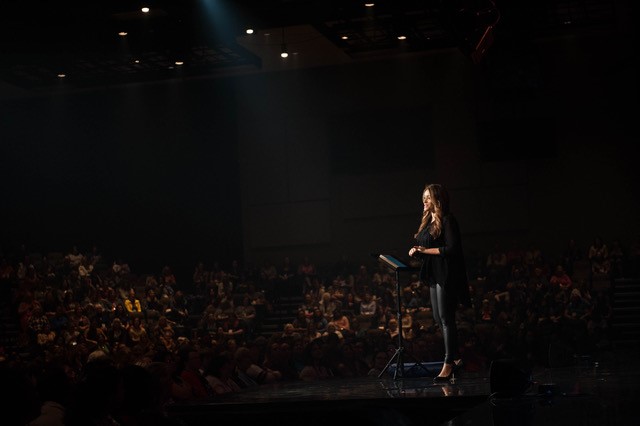
But, you know, in that moment there was a grace for it. And I, like, low key panicked. I went to the dormitory, I grabbed my Bible, and I’m like, Okay God, what do you want me to tell these girls? And I will never forget, I taught Psalm 51, and we gathered the girls. It was probably, I don’t know, thirty girls at the time gathered in this room, and we opened up the Word of God. And as I was teaching the Word of God, they listened. And I realized right then and there, Wait, God has gifted me to teach the Bible in a way that makes the Bible come alive.
And I feel like everything that I’ve gone through, whether as a child, or whether it’s being raised in the inner city, an inability to read, struggling with my weight all during my childhood and teens, all the way to struggling in college because my mom was diagnosed with two forms of cancer, and really wrestling through the goodness of God, all the way up through singleness for a long period of time and thinking, Am I ever going to get married? This idea of grit, this idea of resilience, this idea of perseverance has been something that has been fostered and fought for in my life.
“This idea of grit, this idea of resilience, this idea of perseverance has been something that has been fostered and fought for in my life.” – Bianca Juarez Olthoff
The Three Attributes of Grit
So there is a technical definition of grit, which I love, but I think from a Biblical perspective, I want us to come through the lens in the filter of the scope of Scripture. And so grit is a combination of resilience and perseverance.
There are three attributes to grit, and I’ve studied a lot of research from Harvard Business Review to also neuroscience and neuropathic studies, but I want to take all the research and the science and the data that I did and whittle it down in a way that is helpful for us to hold on to. So I like to say that there’s three P’s of perseverance, three P’s of resilience, three P’s that comprise grit.
1. Perspective
The first one that we see is perspective. Perspective is that we can’t lie to ourselves. We can’t just say, you know, “It’s all going to be okay.”Perspective means that you can have a healthy assessment of what is hard, what is not good, what you wish can change, but that perspective will not stop you. So, you can be in a trying situation. If we believe as Christians that God is sovereign, He is in control, and that He is good, He will work this out. It may not be the way that we want it, but our perspective is this sucks now, but this won’t always suck. Our God is the God who redeems. If the situation is not good, then God is not done, that is the perspective that we need. That perspective allows us to be gritty.
“Our God is the God who redeems. If the situation is not good, then God is not done, that is the perspective that we need. That perspective allows us to be gritty.“ – Bianca Juarez Olthoff
2. Pivot
The second P that we see is pivot. Now, in technical terms, it’s bricolage. It’s when we have, you know, the ability to move. But I like pivot. People who are resilient, the people who are developing grit, the people who are moving forward and persevering, they have the innate ability to pivot on the fly. So we’ve all heard the adage, “When life gives you lemons, make lemonade.” Yes, but I also want to take the seeds of that lemon and plant them in the ground for future generations, because my ability to pivot is going to be teaching generations behind me.
3. Purpose
And the last one is purpose. I’m believing, and what develops grit in me and resilience and endurance, is I am believing that there is a purpose for why I’m going through this.
So if our perspective is that God is going to work it out and we have the ability to pivot and we understand that this is a purpose, that He’s going to work things out for good and He’s going to use me for His glory, and this is not just for me, but this is generations that walk in my wake, that is what makes us gritty.
Jesus Listens, May 15th:
Dearest Lord Jesus,
You light up my perspective as I keep turning my attention to You. A wonderful way to focus on You is to saturate my mind and heart with Scripture—reading it, studying it, and memorizing verses that are especially meaningful to me. Your Word is a lamp to my feet and a light for my path.
As I persevere in these practices, my preoccupation with problems and plans diminishes. This leaves room in my life for more of You. Lord, I ask You to fill me with the Joy of Your Presence!
In Your delightful Name,
Amen
Next week: Dr. W. Lee Warren
Narrator: Next time on the Jesus Calling Podcast, we’ll hear from neurosurgeon Dr. W. Lee Warren, who shares the difficult experiences he’s faced, while ultimately remembering though we may have a hard life, we can simultaneously have an abundant life.
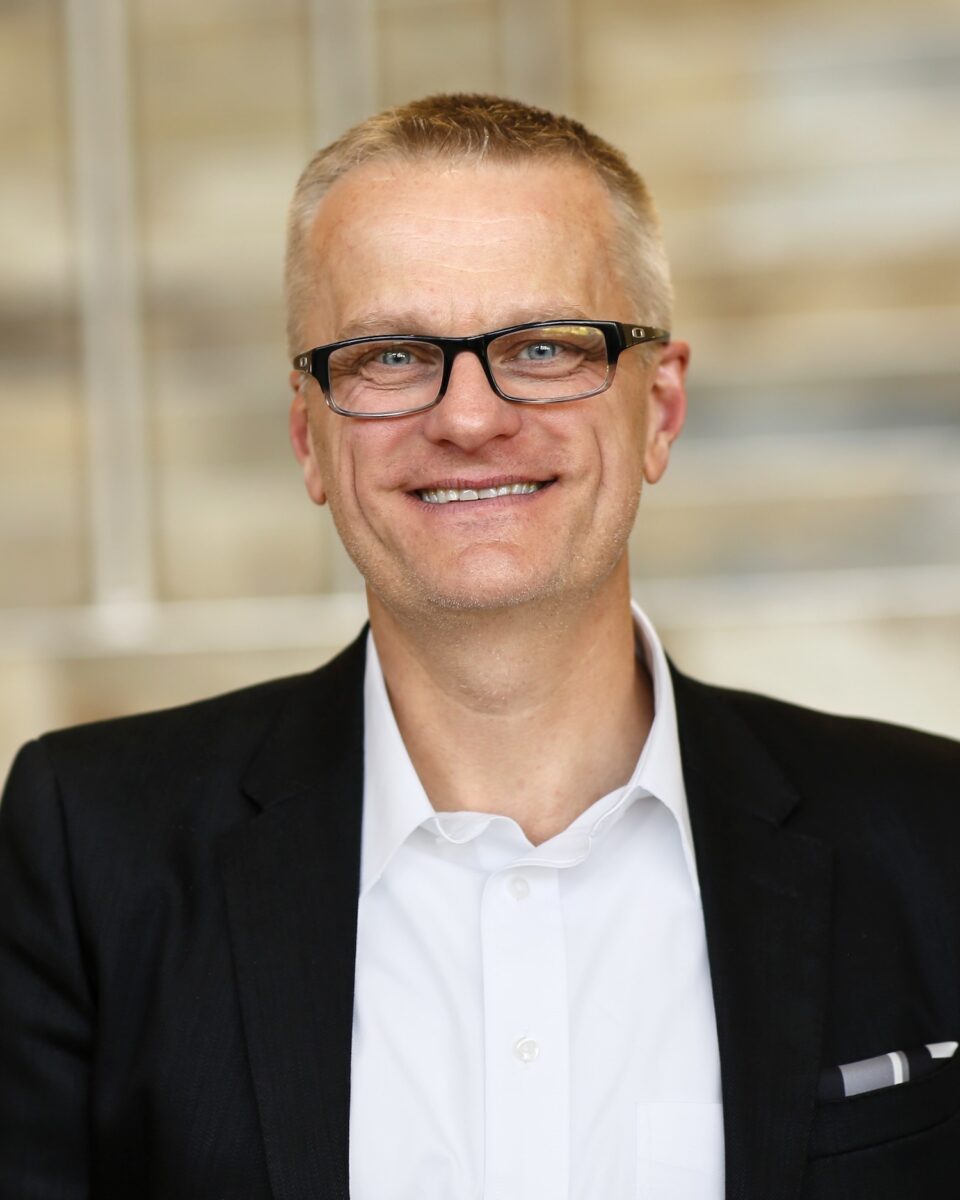
Dr. W. Lee Warren: What Jesus said in John 16:33 is that “This world’s going to give you trouble.” But He also said in John 10:10 that, “You can have an abundant life. I came here so you can have an abundant life.” So the thing that faith does for you is give you the ability to see that both of those things can be true. You can have a hard life and you can have an abundant life. And that’s why faith is so important in recovery.
